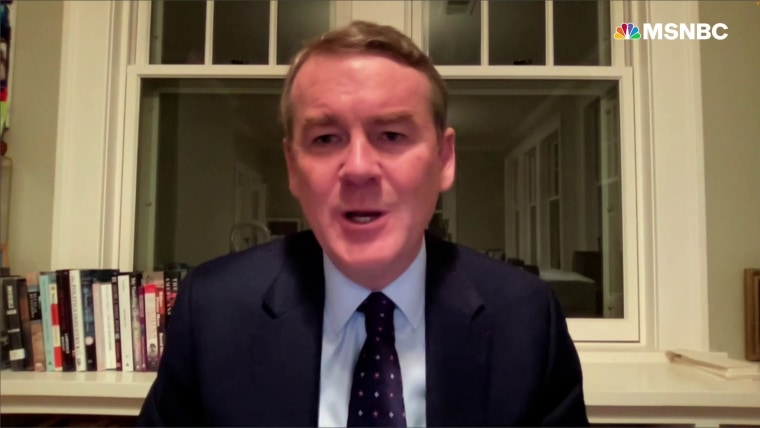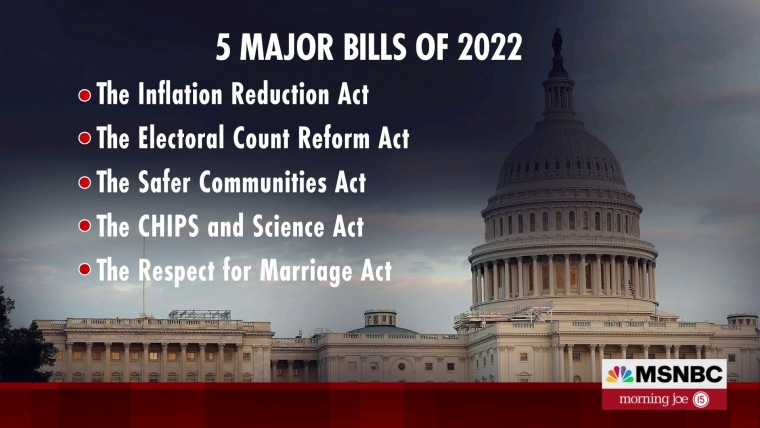When President Joe Biden took office, I argued that it started the clock on what would likely be only two years for Democrats to achieve their major legislative goals. Tuesday marks the first day of a new Congress, and with it the reality that Democratic legislative priorities will be gathering dust for as long as Republicans control the House.
Looking back, it’s true that Biden, Senate Majority Leader Chuck Schumer, D-N.Y., and Speaker Nancy Pelosi, D-Calif., had a much better run than I feared they would. The 117th Congress was the most productive in years. But there are a number of items on the agenda that Democrats left undone. They lost some battles narrowly after a hard fight — but the unfinished business that is going to most haunt America was the result of Democrats not even mustering a bare minimum of effort.
The unfinished business that is going to most haunt America was the result of Democrats not even mustering a bare minimum of effort.
There are three broad categories that encompass the items Democrats left on the table last year. The first are those that simply failed to get enough support to move forward, even within the Democrats’ own caucuses last Congress. They include federal marijuana reform, raising taxes on the wealthy, the Clean Electricity Payment Program and the expanded Child Tax Credit. Polling showed that most of the policies in this category were broadly popular, but legislation either stalled or failed to pass because of the divide between progressive and moderate Democrats in the House and Senate.
The stumbling block on several of those items, including taxing the rich and imposing some of the strongest climate change policies, came down to two moderate senators: Kyrsten Sinema, now I-Ariz., and Joe Manchin, D-W.V. The pair also managed to aid in the demise of legislation in the second category: Bills killed by the filibuster. It was most frustrating to see items in this group fail just short of the finish line, blocked by an archaic Senate rule that, despite the fiction that Manchin and Sinema keep repeating, was created to promote divisions, not foster bipartisanship.
Thanks to the filibuster, bills to restore and expand the full power of the Voting Rights Act never made it to Biden’s desk. Likewise, bills to protect abortion rights after the fall of Roe v. Wade this year either failed or didn’t even come up for a vote because they lacked the 60 votes needed to break a filibuster.

But the third category of legislative failures is the one that sticks the most in my craw. These items didn’t fail because of partisanship or even outside influence, as far as I can tell. Members of Congress, especially in the Senate, just didn’t make them a priority.
In what can only be described as the highest degree of negligence, Congress changed hands without Biden signing a Trump-era version of post-Watergate reforms. Disgust at former President Richard Nixon’s corruption sparked a wide-scale rethinking of federal ethics laws and the ever-expanding powers of the presidency. The venality of President Donald Trump, who exposed how many of our presumed guardrails against tyranny are nothing but norms based on good faith, should have sparked the same fervor.
The Protecting Our Democracy Act is a series of changes to codify many of the norms that Trump broke. The House passed it with the support of only one Republican, but it languished in the Senate. With the end of the last Congress, gone are the chances of that package becoming law. There’s no chance that Republicans who control the House, despite their eagerness to label Biden a would-be dictator, will support a bill constraining the White House.
There’s a small chance that some of the pieces of PODA can make it into other must-pass bills. The most recent National Defense Authorization Act, for example, contained much needed changes to guarantee the independence of federal inspectors general. But for that to happen, Democrats need to be willing to make those changes a priority. That means not just promising to act if they retake the House after 2024. It means showing over the next two years that the work that’s been left unfinished is not forgotten and that they’re using every legislative trick and tactic possible to make America better.

